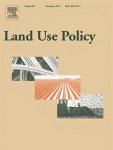
The aim of the Land Administration Project (LAP) policy reform for supporting the establishment of the Customary Land Secretariats (CLSs) is to formalise and strengthen customary land administration and management within the context of decentralised land administration. With the prospects of the CLSs becoming the legal local land administrative units, the paper assessed how traditional land governance institutions may have contributed to the decentralisation of land administration in Ghana.
The research used case study strategy within the qualitative research paradigm and un-structured questionnaires were used to collect data. The analyses show that, simple land registries exist with traditional local governance institutions through the CLSs. The maintenance and effectiveness of this however depends on continuous improvement of records keeping, quality of office personnel and suitable office accommodation. This should be devoid of local power struggles among current and successive chiefs. Also, collaboration with public land sector agencies especially in areas of sharing information on rights, uses, disputes and preparation of planning layouts is paramount. These registries are mere extension of the state land administration apparatus as service units under the deconcentration of land administration powers.
The paper concludes that the current policy focus on strengthening decentralised land administration through the CLSs may fail if attention is not given to the maintenance of the local registries. Revenue generation capacities of the CLSs need to be enhanced in order for them to recruit and maintain quality office staff, and acquire technical logistics. Decentralising land administration to the CLSs under the deconcentration of powers should be maintained in the interim because of the teething problems identified with this current system.
